
Aden: The Ancient Port City of Yemen
Aden, a city steeped in history and rich in culture, is one of Yemen's most fascinating destinations. Nestled along the Gulf of Aden, this ancient port city has been a crossroads of civilizations for centuries. Its strategic location made it a key player in the spice trade routes, and its bustling ports still retain a sense of that vibrant past. Visitors to Aden can explore a variety of historical and cultural sites. The Aden Crater, a volcanic peninsula, offers breathtaking views and a glimpse into the city’s geological past. The city is also home to some impressive architecture, such as the historic mosques and colonial-era buildings that line its streets. The National Museum of Aden provides deeper insights into the city’s storied past, showcasing artifacts that span different eras of Yemeni history. For those seeking relaxation, Aden's coastal charm is irresistible. The city's beaches, such as the popular Gold Mohur Beach, offer pristine sands and clear waters perfect for swimming and sunbathing. Strolling along the Seera Castle or enjoying a boat ride in the harbor can be equally rewarding experiences. The local markets, brimming with spices, textiles, and traditional crafts, offer a sensory feast for any visitor. Aden’s culinary scene is another highlight. The city is known for its delectable seafood, thanks to its location by the sea, and visitors can indulge in mouth-watering dishes at local eateries. Traditional Yemeni coffee houses are perfect spots to unwind and savor the rich flavors of Yemeni coffee and sweets.
Local tips in Aden
- Visit the Aden Crater early in the morning to avoid the midday heat and enjoy the best views.
- Carry cash, as credit card facilities are limited in many places.
- Dress modestly and respect local customs, especially when visiting religious sites.
- Try the local seafood; it's fresh and a staple of Aden's cuisine.
- Hire a local guide to learn more about the historical significance of the sites you visit.
Aden: The Ancient Port City of Yemen
Aden, a city steeped in history and rich in culture, is one of Yemen's most fascinating destinations. Nestled along the Gulf of Aden, this ancient port city has been a crossroads of civilizations for centuries. Its strategic location made it a key player in the spice trade routes, and its bustling ports still retain a sense of that vibrant past. Visitors to Aden can explore a variety of historical and cultural sites. The Aden Crater, a volcanic peninsula, offers breathtaking views and a glimpse into the city’s geological past. The city is also home to some impressive architecture, such as the historic mosques and colonial-era buildings that line its streets. The National Museum of Aden provides deeper insights into the city’s storied past, showcasing artifacts that span different eras of Yemeni history. For those seeking relaxation, Aden's coastal charm is irresistible. The city's beaches, such as the popular Gold Mohur Beach, offer pristine sands and clear waters perfect for swimming and sunbathing. Strolling along the Seera Castle or enjoying a boat ride in the harbor can be equally rewarding experiences. The local markets, brimming with spices, textiles, and traditional crafts, offer a sensory feast for any visitor. Aden’s culinary scene is another highlight. The city is known for its delectable seafood, thanks to its location by the sea, and visitors can indulge in mouth-watering dishes at local eateries. Traditional Yemeni coffee houses are perfect spots to unwind and savor the rich flavors of Yemeni coffee and sweets.
When is the best time to go to Aden?
Iconic landmarks you can’t miss
Seera Castle
Discover the historical grandeur of Seera Castle in Aden, Yemen, where stunning views and rich history intertwine.
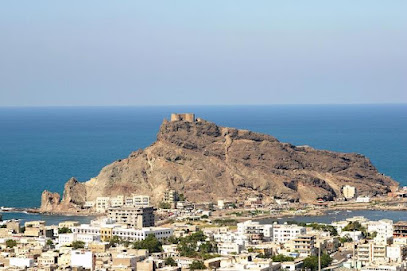
Ninety mall
Explore Ninety Mall in Shaykh Uthman for a unique shopping experience blending local culture and modern amenities, perfect for tourists.
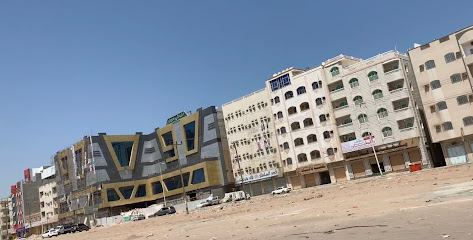
Aden International Airport
Discover the gateway to Yemen at Aden International Airport, where adventure and rich cultural experiences await travelers in the historic city of Aden.
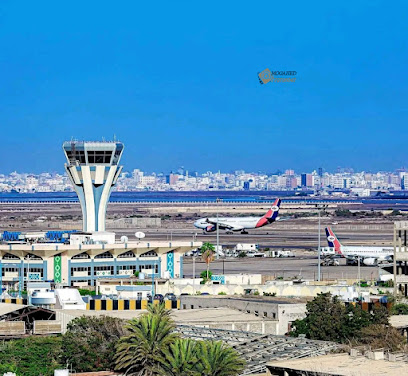
Alsahareej (Water Tanks)
Discover the Alsahareej Water Tanks in Aden, Yemen—a historical landmark showcasing ancient engineering in a breathtaking setting.
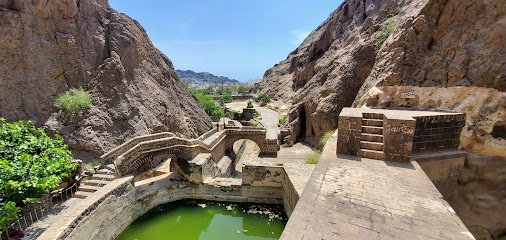
Coral Hotel
Discover unparalleled luxury and comfort at Coral Hotel, your gateway to the wonders of Aden, Yemen.
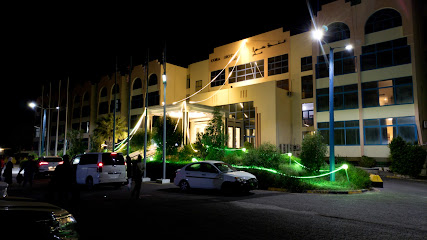
Fun City Park
Discover the joy of rides, games, and relaxation at Fun City Park, Aden's premier theme park for families and thrill-seekers alike.
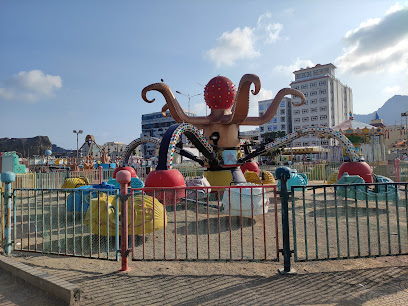
Tiger's Hill Coast
Explore the breathtaking landscapes and serene beauty of Tiger's Hill Coast in Little Aden, Yemen, a paradise for nature lovers and travelers alike.
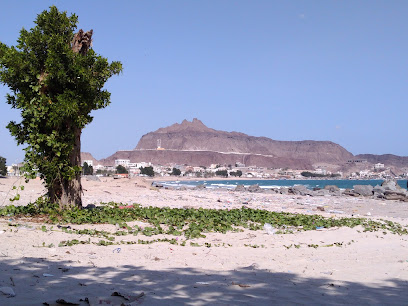
Abyan Coast Park
Explore Abyan Coast Park in Aden, Yemen - a serene escape with stunning coastal views perfect for relaxation and outdoor activities.
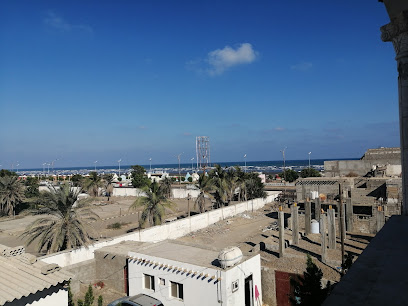
Elephant Bay Beach Resort
Unwind at Elephant Bay Beach Resort - A serene paradise in Aden, Yemen offering luxury accommodations, pristine beaches, and unforgettable experiences.
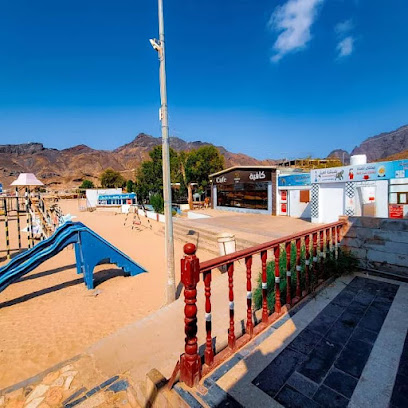
Aden Mall
Explore Aden Mall in Crater, Yemen – the ultimate shopping destination combining local charm and modern retail experiences for tourists.
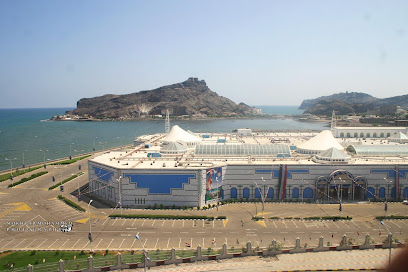
Aban Mosque
Experience the breathtaking beauty and spiritual serenity of Aban Mosque in Aden, a cultural treasure showcasing Islamic architecture and Yemen's rich heritage.
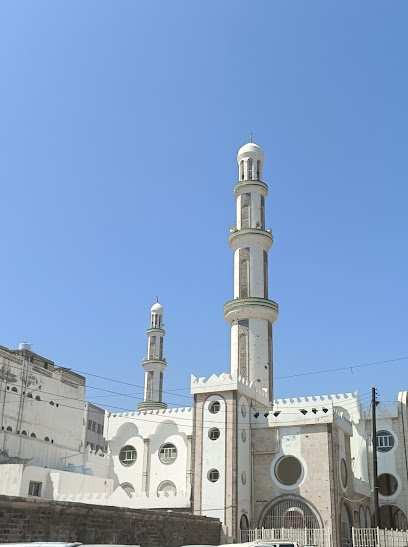
Little Ben Aden
Explore Little Ben Aden, a historical landmark in Yemen, where rich heritage meets stunning architecture and vibrant local culture.
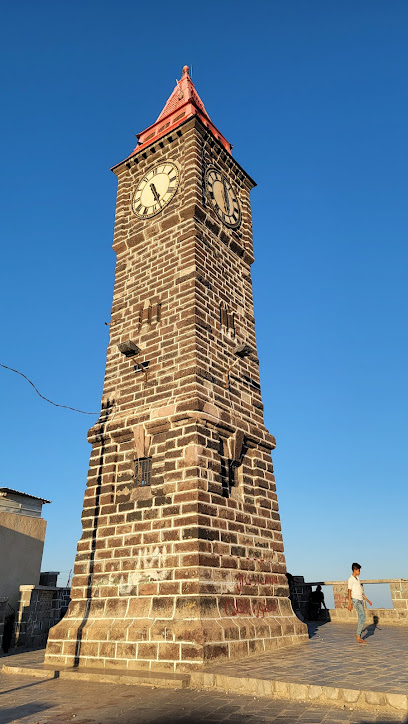
Mgahaah Haj Saif Tea Edenic
Experience the essence of Yemeni coffee culture at Mgahaah Haj Saif Tea Edenic in Aden, where every cup tells a story.
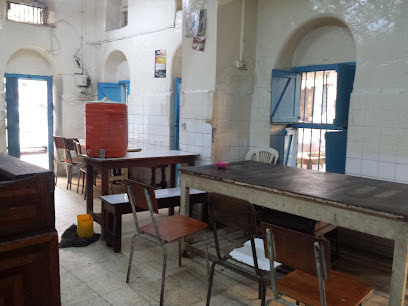
مدينة الملاهي صيرة
Discover the thrill of Aden's City of Amusement Park, filled with exciting rides, family-friendly attractions, and endless fun for all ages.
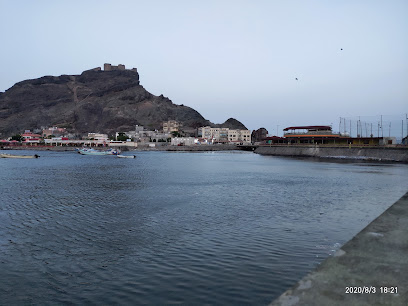
Tourists Quay (Deka)
Experience the vibrant atmosphere and stunning views at Tourists Quay (Deka) in Aden, a must-visit destination for every traveler.
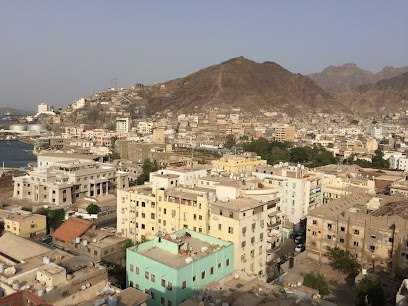
Unmissable attractions to see
Dar AlHajar
Explore the breathtaking Dar AlHajar, a historical landmark in Yemen showcasing stunning architecture and rich cultural heritage amidst majestic landscapes.
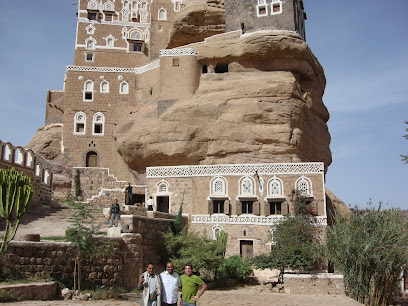
Seera Castle
Explore Seera Castle, a historical fortress in Aden that offers breathtaking views of the Red Sea and insights into Yemen's rich cultural heritage.
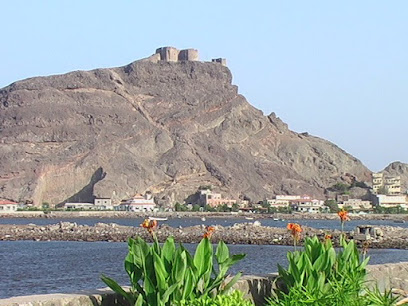
Alsahareej (Water Tanks)
Explore the Alsahareej Water Tanks in Aden, Yemen, an ancient marvel showcasing historic engineering and cultural significance.
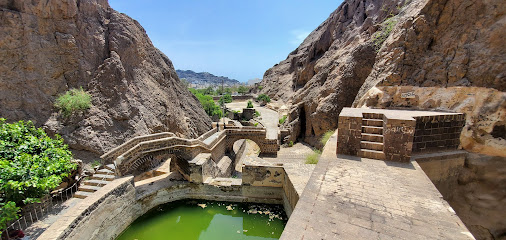
Fun City Park
Explore Fun City Park in Aden, Yemen - a vibrant theme park filled with exciting rides, family-friendly activities, and delicious food options.
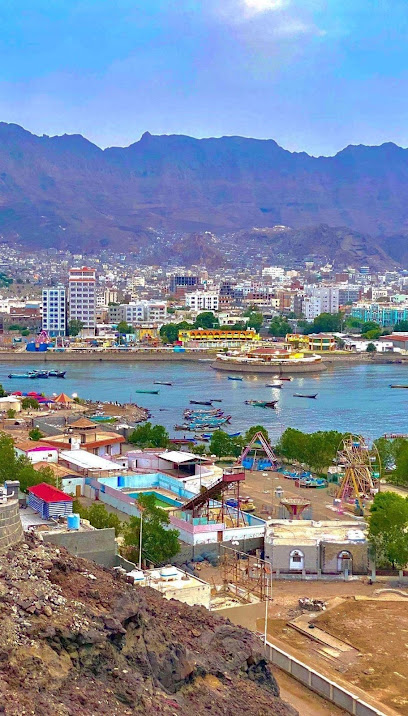
Tiger's Hill Coast
Explore the tranquil beauty of Tiger's Hill Coast, a serene park in Little Aden, Yemen, perfect for relaxation and stunning coastal views.
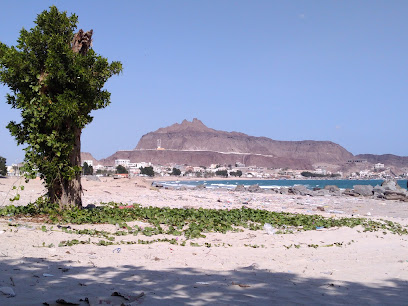
Abyan Coast Park
Abyan Coast Park: A serene coastal escape in Aden, Yemen, perfect for relaxation and nature lovers.
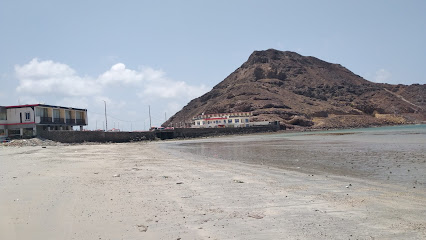
Little Ben Aden
Experience the charm of Little Ben Aden, a historical landmark that showcases Aden's rich cultural heritage and stunning coastal views.
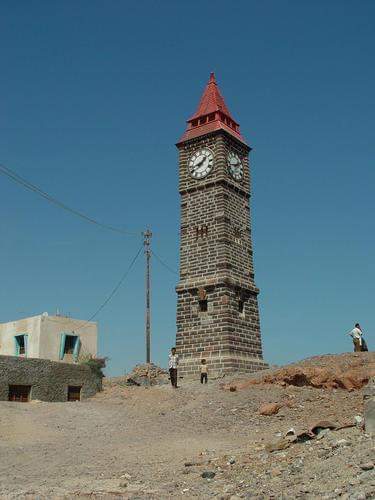
Tourists Quay (Deka)
Experience the vibrant culture and scenic beauty of Tourists Quay (Deka) in Aden, where local flavors and stunning views await every traveler.
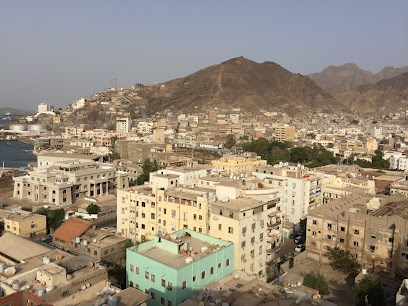
Shoab Beach
Experience the pristine beauty of Shoab Beach in Qalansiyah, Yemen, where tranquility meets stunning coastal vistas.
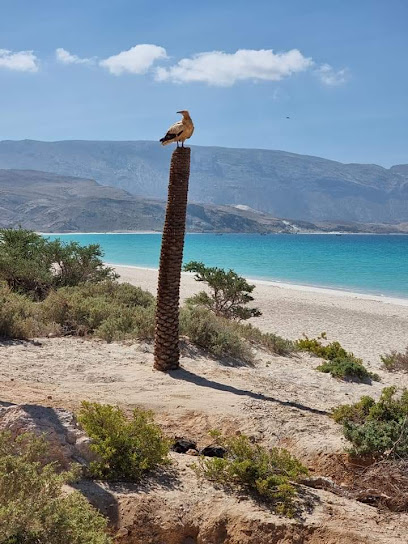
Cornish Little Aden
Explore Cornish Little Aden, a stunning beach destination in Yemen known for its golden sands, crystal-clear waters, and breathtaking views.
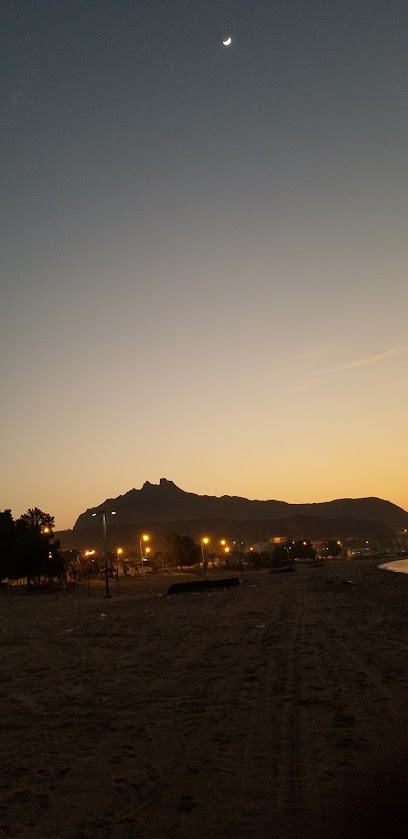
شاطئ عرعهر Arher Beach
Explore the untouched beauty and serene ambiance of Arher Beach in Kalleesa, Yemen, a hidden gem for nature lovers and beach enthusiasts alike.
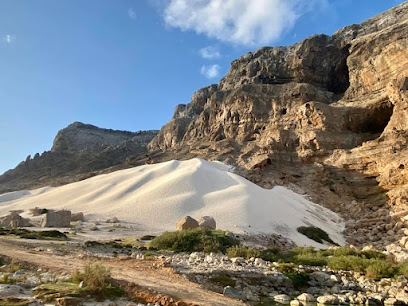
شاطئ دليشة Delisha Beach
Discover the serene beauty of Delisha Beach in Yemen, where stunning sunsets meet vibrant marine life for an unforgettable coastal experience.
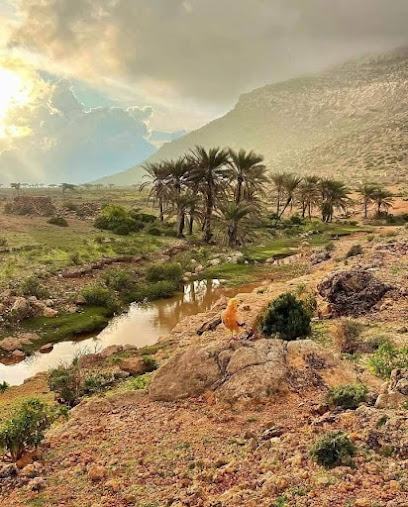
قمة جبل شمسان
Explore the breathtaking heights of Jabal Shamsan in Aden, Yemen, where stunning vistas and rich natural beauty await every traveler.
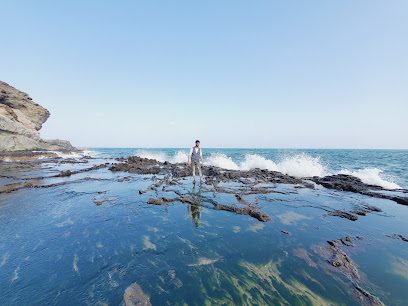
احد البيوت البريطانية القديمة في الفنار
Explore the exquisite Old British House in Al-Fanar, Aden – a historic gem showcasing colonial architecture and rich cultural heritage.
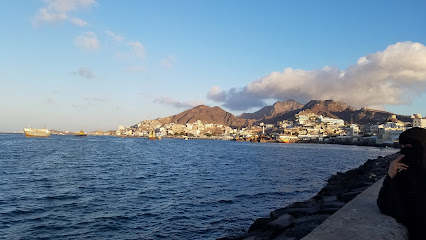
شاطئ جولدمور
Experience the breathtaking beauty of جولدمور Beach in Aden, Yemen, where golden sands and crystal-clear waters await every traveler.
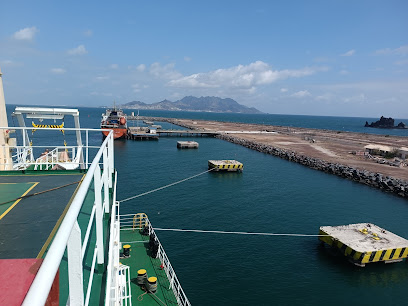
Essential places to dine
Baladi Restaurants & Fish Restaurant
Discover authentic Yemeni flavors at Baladi Restaurants & Fish Restaurant in Aden - a culinary experience not to be missed!
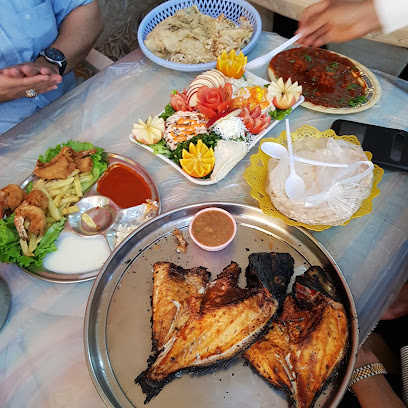
Al-Shira'a Fish Restaurant
Experience authentic Yemeni seafood at Al-Shira'a Fish Restaurant near Sira Bridge in Aden – where fresh flavors meet local hospitality.
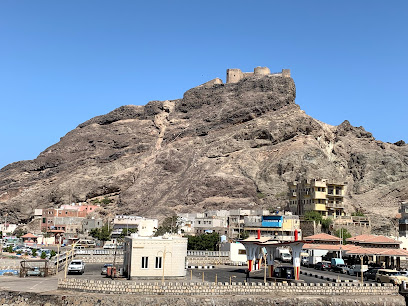
ICE PALACE RESTAURANT
Discover authentic Yemeni flavors blended with international cuisine at ICE PALACE RESTAURANT in Aden – a culinary haven for every food lover.
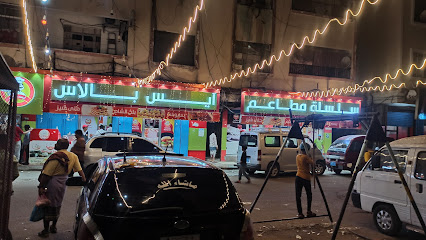
Gamal Restaurant
Discover authentic Yemenite flavors at Gamal Restaurant in Aden – a must-visit culinary gem showcasing traditional dishes.
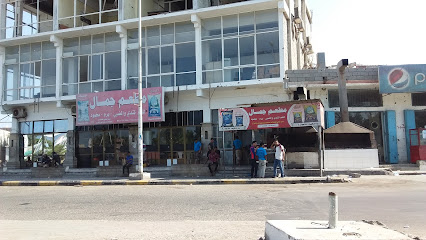
Al Somahi Restaurant
Experience authentic Yemeni cuisine at Al Somahi Restaurant in Aden, where tradition meets flavor in every dish.
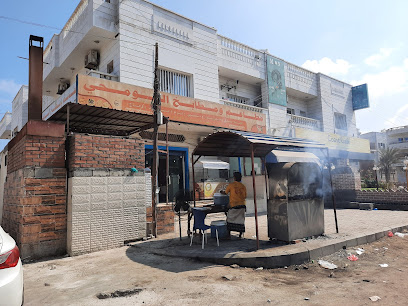
منقوشه لبنان
Savor authentic Lebanese flavors at منقوشه لبنان in Aden - where every dish tells a story.
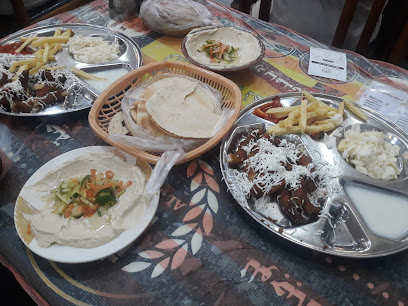
Al-Taweel Restaurant
Discover authentic Yemeni flavors at Al-Taweel Restaurant in Aden – where every dish tells a story.
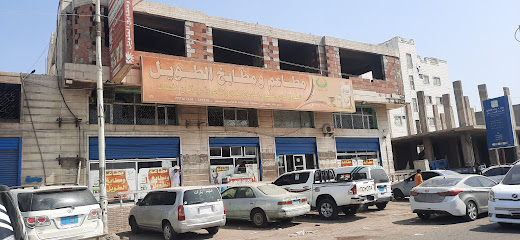
Al Riyan Restaurant
Discover authentic Yemeni cuisine at Al Riyan Restaurant in Aden – a delightful spot for food lovers seeking local flavors.
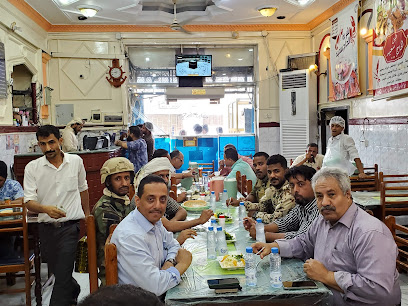
Albaihani Golden Restaurants for Zurbian
Discover authentic Yemeni cuisine at Albaihani Golden Restaurants—home of the legendary Zurbian dish in Aden.
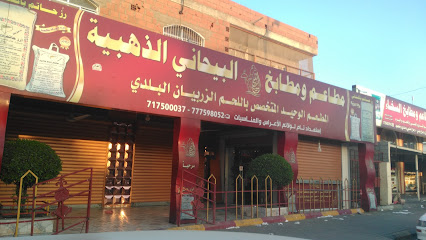
Pizza 24
Experience authentic Italian flavors at Pizza 24 in Aden—where every slice tells a story.
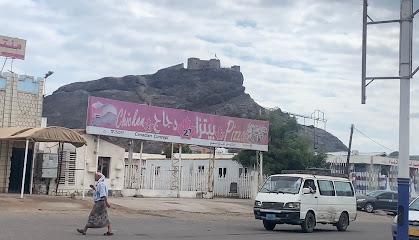
مطعم النعمان
Explore the rich culinary heritage of Yemen at مطعم النعمان in Aden - where tradition meets flavor.
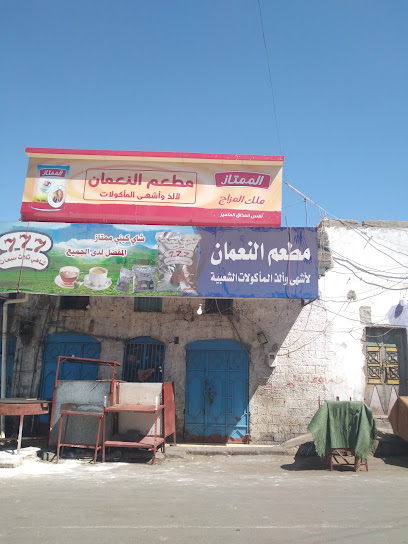
مطعم ومخبازة الأخوان
Discover authentic Yemeni cuisine at مطعم ومخبازة الأخوان in Aden - a culinary gem blending tradition with delightful flavors.

مطعم الميدان
Experience authentic Yemeni cuisine at مطعم الميدان in Aden - where tradition meets taste.
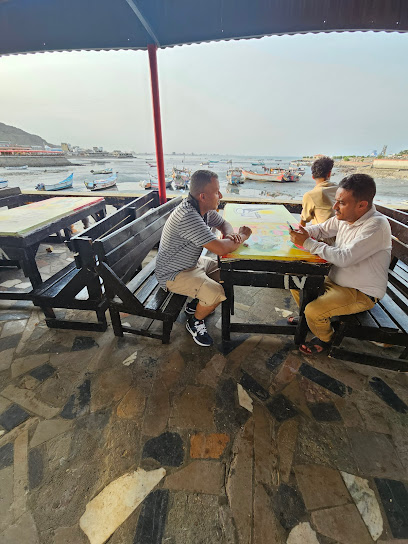
Marriott aden restaurant مطعم ماريوت عدن
Experience the best of Yemeni cuisine with stunning waterfront views at Marriott Aden Restaurant in Aden.
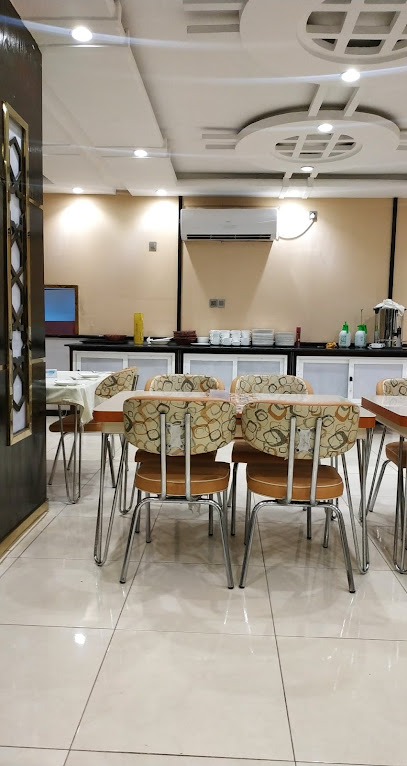
Al-Jamaheer Restaurant for rice and fish
Experience authentic Yemeni cuisine at Al-Jamaheer Restaurant with fresh fish and rice dishes that celebrate Aden's culinary traditions.
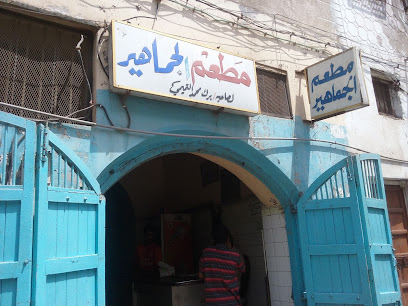
Markets, malls and hidden boutiques
Gulf Mall
Explore Gulf Mall in Aden, Yemen - your ultimate shopping and dining destination with a blend of local culture and modern amenities.
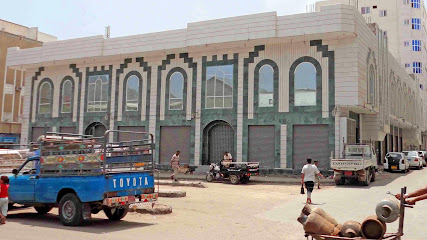
جرين مارت green mart
Experience the vibrant flavors of Yemen at Green Mart, your essential grocery store in Mulla’a, Al-Ma'ala.
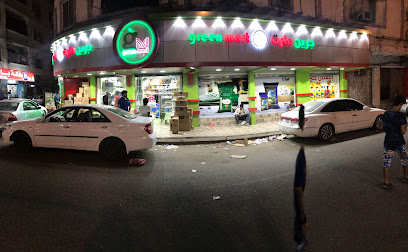
MAR Trading
Discover MAR Trading in Aden, the ultimate pet supply store offering a vast selection of products for your beloved pets, plus unique stationery finds.
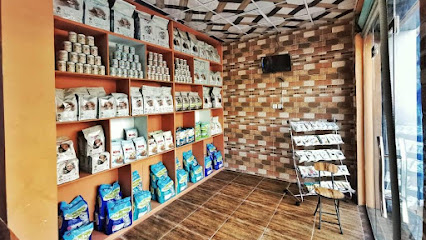
الأمير للمعاوز
Discover the essence of Yemeni fashion at الأمير للمعاوز in Aden, where tradition meets contemporary style.
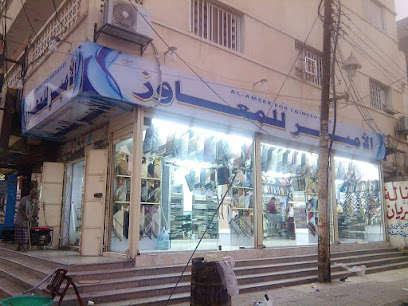
عدن
Discover Aden's vibrant shopping scene, where traditional markets meet modern retail, offering unique treasures and delightful local cuisine.
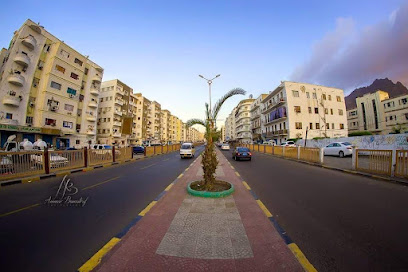
بن شيبان للتحف والهدايا والقرطاسية المدرسية
Explore the charm of Yemen at Ben Shiban Souvenir Store, where unique gifts and local artistry come alive.
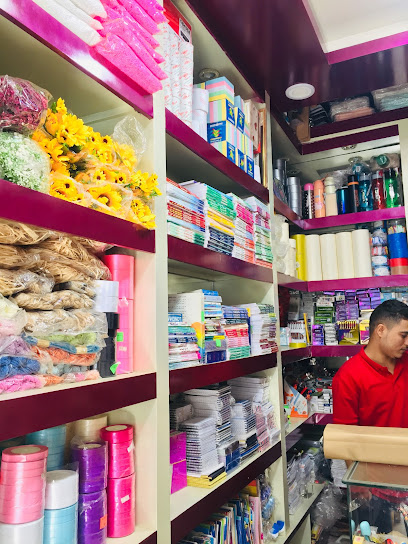
فريق كيان لون
Explore Team Kyan Lon in Aden for the latest mobile technology and an authentic taste of local culture in Yemen.
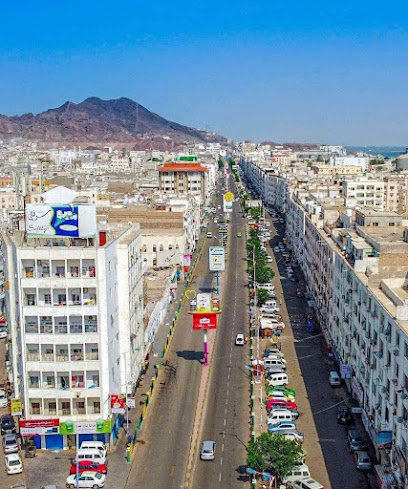
الصديق للاثاث
Explore traditional Yemeni craftsmanship at الصديق للاثاث, a charming furniture store in Aden, offering unique and locally made pieces.

محلات اليمن التجارية -باحكوم
Discover a diverse range of beauty products at محلات اليمن التجارية - باحكوم in Aden, where local charm meets international quality.
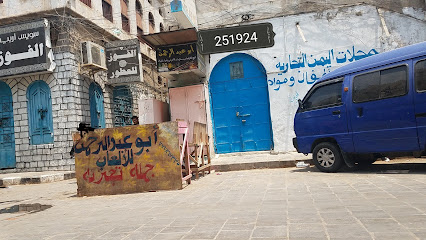
محلات الشيباني للرنج
Explore محلات الشيباني للرنج in Aden for a unique shopping experience filled with local crafts and authentic Yemeni treasures.
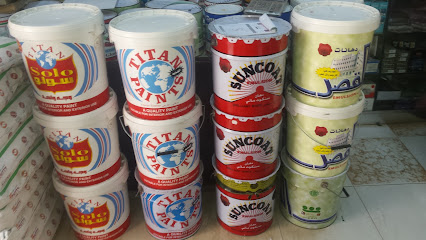
مركز السلام للزينة والتحف والهدايا
Discover unique Yemeni handicrafts and souvenirs at مركز السلام للزينة والتحف والهدايا in Aden, where culture meets craftsmanship.
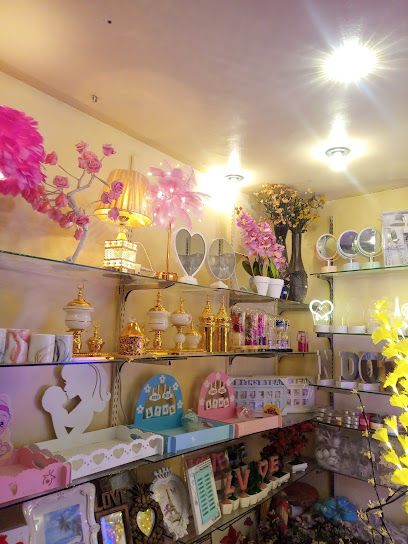
محلات المرداس
Explore Al-Merdas in Aden for top-quality tires and outstanding service, perfect for enhancing your driving experience while in Yemen.
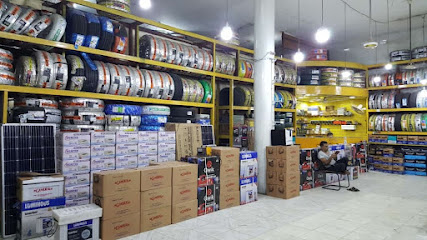
توينس للتحف والهدايا
Explore توينس للتحف والهدايا in Aden for unique Yemeni souvenirs and gifts that capture the essence of local culture and craftsmanship.
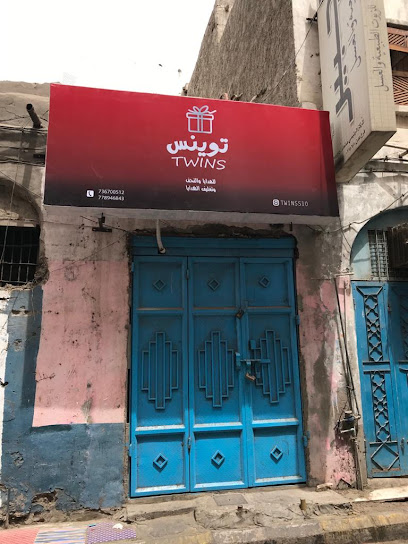
ALFARAEE Group Warehouse
Discover a treasure trove of trading cards at ALFARAEE Group Warehouse in Aden, Yemen, where collectors unite and rare finds await.

هافانا لاقمشة الكنب والستائر والاكسسوارات
Discover unique home decor and exquisite craftsmanship at Hafna Furniture Store in Aden, Yemen - a paradise for furniture lovers.

Essential bars & hidden hideouts
نبات الأرض
Discover the lively atmosphere and unique flavors at نبات الأرض, the top bar in الفيوش for tourists seeking local experiences.

قاعة الأمل للافراح والمناسبات
Experience the joy of celebrations at قاعة الأمل, a premier venue in Shaykh Uthman, Yemen, known for its vibrant atmosphere and exceptional service.

PERFUME BAR
Explore the aromatic world of Perfume Bar in Aden, where traditional craftsmanship meets modern fragrance artistry.
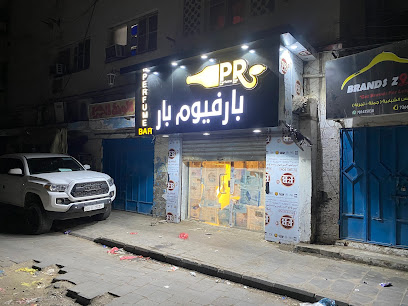
بهارات الأخوين
Experience the vibrant nightlife of Shaykh Uthman at بهارات الأخوين, where local flavors meet international drinks in a cozy bar setting.
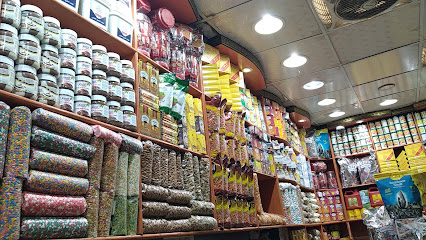
كفتيرياالامتياز
Discover the vibrant atmosphere and local flavors at كفتيرياالامتياز, a top-notch bar in Shaykh Uthman, Yemen.

الحمادي للبهارات
Discover the rich flavors of Yemen at الحمادي للبهارات, a unique bar offering an authentic taste of local spices and drinks in انماء.
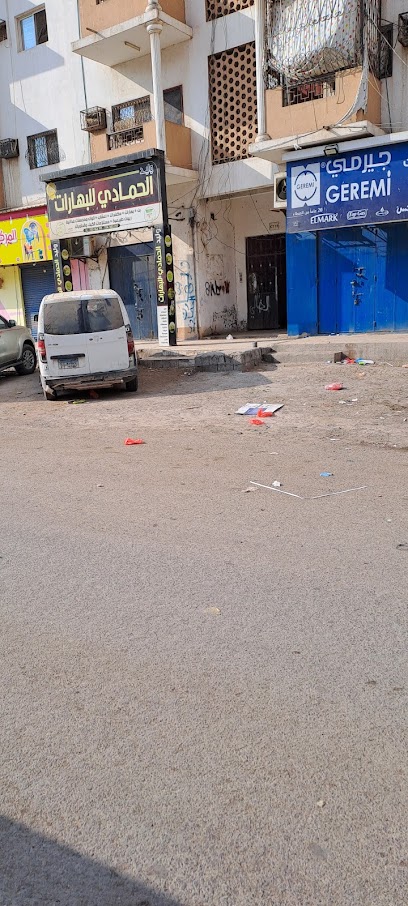
حلويات علي سعيد
Discover the sweet taste of Yemen at حلويات علي سعيد, where every dessert is a celebration of local flavors and hospitality.

بلك 29
Discover the vibrant atmosphere of بلك 29, a welcoming gay bar in Shaykh Uthman, Yemen, perfect for nightlife and socializing.

ابوحامد
Experience the local vibe at ابوحامد, a charming bar in Shaykh Uthman, Yemen, where culture meets relaxation amidst vibrant surroundings.

شيشة مخصصة للشباب
Experience the youthful energy and diverse flavors at Aden's favorite hookah bar, perfect for social gatherings and relaxation.
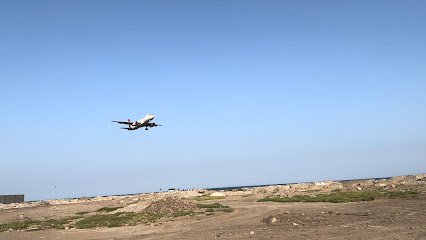
محمد
Discover the vibrant nightlife and local flavors at Muhammad Bar in Shaykh Uthman, Yemen, a perfect spot for relaxation and connection.

حسن علي حاجي
Experience the charm of حسن علي حاجي, a vibrant bar in المدينه الخضراء, Yemen, offering refreshing drinks and a welcoming atmosphere.

بلاستيشن
Discover بلاستيشن, Shaykh Uthman's premier dart bar, where fun and camaraderie come together for an unforgettable gaming experience.

كشك وحشي للتمبل
Discover the vibrant atmosphere of Kiosk Wahshi, a local bar in Al-Huswah, Yemen, where culture meets refreshing beverages.

Local Phrases
-
- Helloمرحبا
[marhaban] - Goodbyeوداعا
[wadaeana] - Yesنعم
[naam] - Noلا
[laa] - Please/You're welcomeمن فضلك
[min fadlik] - Thank youشكرا
[shukran] - Excuse me/Sorryعذرا
[aadhara] - How are you?كيف حالك؟
[kayfa haluk?] - Fine. And you?بخير. وأنت؟
[bikhayr. wa anta?] - Do you speak English?هل تتكلم الإنجليزية؟
[hal tatakallam al'injiliizia?] - I don't understandأنا لا أفهم
[ana la afham]
- Helloمرحبا
-
- I'd like to see the menu, pleaseأريد أن أرى القائمة، من فضلك
[uridu an ura alqa'imah, min fadlik] - I don't eat meatأنا لا آكل اللحوم
[ana la aakul allahum] - Cheers!في صحتك!
[fi sahtik!] - I would like to pay, pleaseأريد أن أدفع، من فضلك
[uridu an adfaa, min fadlik]
- I'd like to see the menu, pleaseأريد أن أرى القائمة، من فضلك
-
- Help!النجدة!
[alnajdah!] - Go away!اذهب بعيدا!
[adhhab baedan!] - Call the Police!اتصل بالشرطة!
[atassil bialshurta!] - Call a doctor!اتصل بطبيب!
[atassil bitalib!] - I'm lostلقد ضللت الطريق
[laqad dalalt altariq] - I'm illأنا مريض
[ana mareed]
- Help!النجدة!
-
- I'd like to buy...أريد أن أشتري...
[uridu an ashtari...] - I'm just lookingأنا فقط أتفرج
[ana faqat atafarraj] - How much is it?كم الثمن؟
[kam althaman?] - That's too expensiveهذا غالي جدا
[hadha ghali jiddan] - Can you lower the price?هل يمكنك خفض السعر؟
[hal yumkinuk khafd alsiar?]
- I'd like to buy...أريد أن أشتري...
-
- What time is it?كم الوقت؟
[kam alwaqt?] - It's one o'clockالساعة الواحدة
[alssa'at alwaahidah] - Half past (10)الساعة العاشرة والنصف
[alssa'at alashirah wannisf] - Morningالصباح
[alsabah] - Afternoonالعصر
[aleasar] - Eveningالمساء
[almasa'] - Yesterdayأمس
[ams] - Todayاليوم
[alyawm] - Tomorrowغدا
[ghadan] - 1واحد
[wahid] - 2اثنان
[ithnan] - 3ثلاثة
[thalatha] - 4أربعة
[arba'ah] - 5خمسة
[khamsah] - 6ستة
[sittah] - 7سبعة
[sab'ah] - 8ثمانية
[thamaniah] - 9تسعة
[tis'ah] - 10عشرة
[asharah]
- What time is it?كم الوقت؟
-
- Where's a/the...?أين هو/هي...؟
[ayn huwa/hiya...?] - What's the address?ما هو العنوان؟
[ma huwa al'anaan?] - Can you show me (on the map)?هل يمكنك أن تريني (على الخريطة)؟
[hal yumkinuk an tureeni (ala alkhareetah)?] - When's the next (bus)?متى يأتي الحافلة التالية؟
[mata yaati alhafilat altaliyah?] - A ticket (to ....)تذكرة (إلى...)
[tadhkirah (ila...)]
- Where's a/the...?أين هو/هي...؟
History of Aden
-
Aden's history dates back to antiquity, with evidence suggesting it was a hub for maritime trade as early as the 7th century BCE. Its strategic location on the Arabian Peninsula made it a natural harbor for ships navigating the Red Sea and Indian Ocean. The city is mentioned in ancient texts, including those by the Greek geographer Ptolemy.
-
In the 6th century CE, Aden became an important port for the Islamic world. It flourished under the rule of the Umayyad and later the Abbasid Caliphates. The city's prosperity continued as it became a key stop on the route for pilgrims traveling to Mecca. Islamic scholars and traders from across the Muslim world frequented Aden, contributing to its cultural and economic development.
-
The 13th century saw Aden come under the control of the Rasulid Dynasty, which ruled Yemen and parts of the Arabian Peninsula. During this period, Aden became a major center for trade, dealing in goods like spices, textiles, and precious metals. The Rasulids invested in the city's infrastructure, building mosques, schools, and other public amenities.
-
In the early 16th century, the Portuguese attempted to control Aden as part of their efforts to dominate the spice trade routes. However, they were soon expelled by the Ottoman Empire, which ruled Aden from 1538 to 1630. Under Ottoman rule, Aden continued to be a strategic naval base and a bustling port city.
-
In 1839, the British East India Company seized Aden to establish a coaling station for ships en route to India. Aden became a British Crown Colony in 1937, and its port was developed into one of the busiest in the world. The British era saw significant modernization, including the construction of schools, hospitals, and other infrastructure.
-
Aden played a crucial role during the Yemeni Civil War, which began in 1962. It became the capital of the newly formed People's Democratic Republic of Yemen (South Yemen) in 1967. The city was a focal point of conflict and political change until the unification of North and South Yemen in 1990.
-
In recent years, Aden has been at the center of Yemen's ongoing conflict, suffering from political instability and economic challenges. However, it remains a city of historical significance and cultural richness. Efforts are being made to preserve its heritage sites and revitalize its economy, ensuring that Aden continues to be a symbol of Yemen's storied past.
Aden Essentials
-
Aden is accessible via Aden International Airport (ADE), which has flights connecting to major cities in the Middle East and Africa. Alternatively, you can arrive by sea through the Port of Aden, a significant maritime hub. Overland travel from other Yemeni cities is possible, though it is essential to check current travel advisories and local conditions due to security concerns.
-
In Aden, taxis are the most common form of transportation and are relatively affordable. You can also rent a car, but it is advisable to hire a local driver familiar with the area. Public buses and minibuses (known locally as 'dabbabs') operate within the city and are an inexpensive way to travel, though they might be crowded. Walking is feasible in some neighborhoods, but be cautious of traffic.
-
The official currency in Yemen is the Yemeni Rial (YER). While credit cards are accepted in some hotels and larger establishments, cash is preferred in most places. ATMs are available but not widespread, so carrying sufficient cash is advisable. Ensure you have smaller denominations, as larger bills can be difficult to change.
-
Aden, like much of Yemen, has areas with elevated security risks. It is crucial to stay updated with travel advisories from your government. Avoid neighborhoods such as Crater and Al-Mualla after dark, where crime rates targeting tourists can be higher. Always travel with a local guide or trusted contact, and avoid displaying valuables in public.
-
In case of an emergency, dial 199 for police assistance and 191 for medical emergencies. It is highly recommended to have comprehensive travel insurance that includes medical evacuation. Major hospitals in Aden include Al-Jumhouriya Hospital and 22 May Hospital. Pharmacies are available but may have limited supplies, so carry essential medications.
-
Fashion: Do dress modestly, with long sleeves and long trousers or skirts. Avoid wearing shorts and sleeveless tops. Religion: Do respect Islamic customs, especially during prayer times and Ramadan. Public Transport: Do be patient as buses and taxis can be crowded and schedules unpredictable. Greetings: Do greet people with a handshake and use the right hand. Avoid using the left hand for eating or greeting. Eating & Drinking: Do accept food and drink offerings graciously. Don't eat in public during daylight hours in Ramadan.
-
For an authentic experience, visit the local souks (markets) such as the Al-Mansoura Market to buy traditional Yemeni goods and spices. Engage with locals who are generally welcoming and can offer rich insights into the city's history and culture. Don't miss the Sira Fortress and the Aden Tanks for historical exploration. Enjoy local dishes like mandi and fahsa at traditional restaurants for a true taste of Yemeni cuisine.
Nearby Cities to Aden
-
Things To Do in Ibb
-
Things To Do in Dhamar
-
Things To Do in Obock
-
Things To Do in Loyada
-
Things To Do in Djibouti City
-
Things To Do in Tadjoura
-
Things To Do in Arta
-
Things To Do in Sana'a
-
Things To Do in Ali Sabieh
-
Things To Do in Dikhil
-
Things To Do in Hargeisa
-
Things To Do in Dire Dawa
-
Things To Do in Harar
-
Things To Do in Jizan
-
Things To Do in Najran










